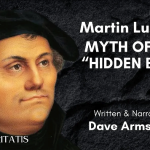 Very recently, Eerdmans published a new volume on Romans in the Pillar series that replaces the earlier one by Leon Morris (published 1988). The new volume is by Colin Kruse, Senior Lecturer in New Testament (Melbourne School of Theology). The Pillar series is known for representing a conservative strand of evangelicalism, though far from fundamentalistic. The volumes on Ephesians (O’Brien), John (Carson), and 1 Corinthians (Rosner/Ciampa) are remarkable and respected very broadly.
Very recently, Eerdmans published a new volume on Romans in the Pillar series that replaces the earlier one by Leon Morris (published 1988). The new volume is by Colin Kruse, Senior Lecturer in New Testament (Melbourne School of Theology). The Pillar series is known for representing a conservative strand of evangelicalism, though far from fundamentalistic. The volumes on Ephesians (O’Brien), John (Carson), and 1 Corinthians (Rosner/Ciampa) are remarkable and respected very broadly.
My first encounters with the work of Kruse are his earlier books, Paul, the Law, and Justification and John (Tyndale Commentary). Both of these works demonstrate that Kruse is a capable exegete. Given his expertise and interest in the area of Paul and the Law, he was certainly a fine choice to serve as author of a replacement volume on Romans.
In my review, I will spend more time on the introduction, and then refer briefly to the commentary notes.
Introduction
As far as introductions go, especially on Romans, I found that Kruse wrote succinctly, commenting on the most important matters. In terms of historical context of Romans, he is persuaded that “the earliest Christian community in Rome would have been Jewish in character” (a view shared by R Longenecker, A. Hultgren, and others), and that by the time the letter was written, the reading/hearing audience was “comprised of a Gentile majority and a Jewish minority” (p. 2).
When it comes to the purpose of Romans, Kruse follows the common proposal that the thesis statement is found in 1:16-17 whereby “the power of God is revealed through the gospel for all who have faith” (p. 7). Kruse finds 15:15-16 also to be critically important, as his intention was “to minister to the believers in Rome for whom he had an apostolic responsibility,” desiring that the Roman believers should be “an acceptable sacrifice to God, consecrated by the Holy Spirit” (p. 11).
When it comes to the New Perspective on Paul, Kruse is quite critical of Dunn, Wright, and Sanders. He does not find “covenantal nomism” to be a worthwhile model to cover the complexity of Second Temple Judaism (p. 21). However, it should be noted that Dunn accepts the variegated nature of early Judaism. Thus, Dunn himself wrote that if we agree it was “variegated,” it is not a choice between “covenantal nomism” and “variegated nomism,” but best termed “variegated covenantal nomism.” I think Dunn is right on this.
I did think that Kruse wrote wisely on the subject of justification and salvation: “The doctrine of justification by faith is not itself the gospel message — the gospel is the good news of what God as [sic] done through his Son’s atoning death and resurrection to deal with the effects of the fall upon individuals, society, and ultimately the cosmos” (p. 22).
I also found his discussion the “righteousness of God” theme to be very well nuanced. He outlines 5 aspects of the righteousness of God in Romans.
1. his distributive justice
2. his covenant faithfulness
3. his saving action whereby God reveals his righteousness in acting for the salvation of his people
4. his gift of righteousness, that is, the status of being declared righteous by God
5. the righteousness of life he requires of believers and is the outworking of his saving righteousness and the gift of righteousness he bestows upon them
(see p. 26)
At the end of the introduction, Kruse talks about the thorny matter of whether or not there is a centrum Paulinum. As far as Romans in concerned, here is his conclusion: “the center, the heart, the organizing principle of Pauline theology is the action of God through the person and work of Jesus Christ to deal with the effects of human sin, individually, communally, and cosmically” (p. 33).
I think this introduction is well written for a target audience of busy pastors who want to get a bird’s eye view of critical issues in the study of Romans, important historical matters, but especially a preview of themes and core concepts. Who said you can’t introduce Romans in under 500 pages? Kruse did this capably in 33!
Commentary Notes
Overall, let me say that I felt Kruse to have balanced discussions of exegetical concerns. He never beats a dead horse. Also, he is fair and respectful to different types of scholars and scholarship. For example, while he disagrees with N.T. Wright on a very great number of things, he does not shy away from commending a portion of his Romans work that he finds lucid and helpful.
The commentary contains a wide number of delineated excurses that deal with thematic matters, such as “eternal life in the Pauline corpus” or “faith and conscience.” These will be useful for wider comprehension of the significance of issues he raises in the commentary notes.
While I was impressed with Kruse’s commentary overall, and I find it on par in terms of “good exegesis” with the other Pillar commentaries, I must say that if a new commentary on Romans should appear, I am expecting it to offer some kind of clear contribution to the study of Romans. If a conservative evangelical were to ask for a good Romans commentary recommendation, I would not hesitate to bring up Kruse’s work, but I might default to Moo as well. Certainly they do not agree on everything, but they do seem to have a similar commitment to traditional interpretations of Paul and Romans.
Perhaps my being underwhelmed by this commentary has to do with the fact that newer series are trying so hard to make their commentaries theological – Brazos, Two Horizons, even the Zondervan Exegetical Commentary (not to mention Belief and the forthcoming Regula Fidei). As I was reading Kruse’s work, finding his exegetical discussions to be solid at every turn, I couldn’t help but wonder: if you went a bit further and drew out the theological depth and implications, wouldn’t this prove so much more powerful for pastors and students and missionaries and Christian leaders?
By the way, if you are interested in where Kruse stands on the debated exegetical issues in Romans, see Mike Bird’s excellent interview with Kruse.















